Table of content
IQ, EQ, SQ, & AQ: Which One Really Matter To Your Success?
Success is almost impossible without these 4 quotients: IQ, EQ, SQ, AQ. Read this article to see why all 4 matter and how they can impact your career ladder.
Common sense has it that if you are smart enough (talking about high IQ), success should come easy to you. However, IQ scores are just a small element of the overall picture. EQ, SQ, and AQ are other driving forces for you to make it big in life.
To succeed, you need not only IQ (intelligence quotient) but also EQ (emotional quotient), SQ (Social quotient) AQ (adversity quotient). The 4 types of intelligence quotients help you maintain relationships, manage emotions, and overcome challenges.
IQ - Intelligence Quotient
"Intelligence is not the ability to store information, but to know where to find it." - Albert Einstein (Simply put: IQ helps you find solutions, not just memorize facts.)

What is IQ?
IQ, or Intelligence Quotient, measures cognitive ability. It's assessed through standard tests. These tests measure logical thinking, problem-solving, and abstract reasoning.
Among the quotients, IQ shows a person's intellectual capacity. This is because it reflects three key things: (1) logical thinking skills, (2) problem-solving ability, and (3) information processing speed.
According to the Omni Calculator, the average IQ is 100. About 68% of people have an IQ between 85 and 115, based on a standard distribution. Individuals with an IQ of 130 or higher are considered highly intelligent. They make up about 2% of the global population.
Test yourself out: What is your IQ score?
Why IQ matters?
IQ is how you approach and absorb information and knowledge. Thus, it helps you with your schooling. A student who gets high grades will either have discipline or a very high IQ score. What’s more, a study reveals the average IQ of university students, which is 116.5. So if you are below this level, you can struggle when studying in university or can find it hard to catch up with your friends.
IQ matters even more when you work in technical fields, such as software engineering, IT, data science. To get a technical position in a company, you might take an IQ test so that the superiors will know if you have enough mental aptitude for the job.
How IQ impacts success
People with high IQs often process information quickly. They also show strong logical thinking and solve complex problems well. Consequently, this helps them achieve high scores in academics and perform effectively at work. This is especially true in fields needing analysis and creativity.
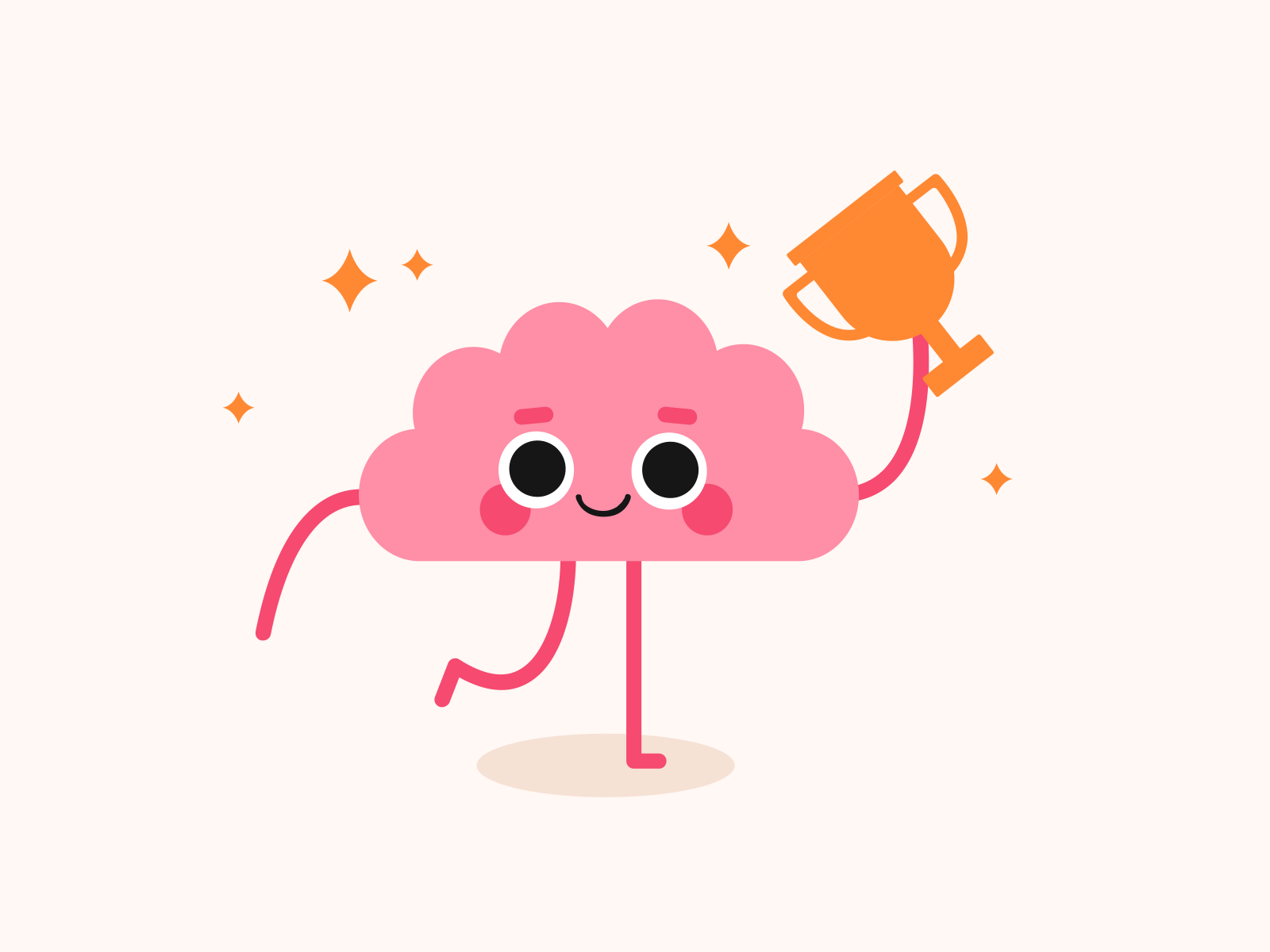
Some common fields for high-IQ individuals include:
- Science (e.g., researchers, physicists)
- Information Technology (e.g., programmers, data scientists)
- Engineering (e.g., technology engineers, software engineers)
- Mathematics (e.g., statisticians, mathematicians)
- Law (e.g., lawyers, judges)
- Education (e.g., university lecturers, education researchers)
Some "geniuses" with extremely high IQs include: Terence Tao, an Australian mathematician with an estimated IQ of 225-230. Bill Gates, the tech mogul and Microsoft founder, also has an IQ around 160. Marilyn vos Savant once held the Guinness World Record for the highest IQ, reaching 228.
💡Fun Fact: Albert Einstein & The Secret to His Intelligence Albert Einstein is widely seen as one of history's greatest geniuses. However, he never actually took an IQ test! Researchers estimate his IQ might have been between 160 and 190. This places him in the top 0.1% of the world's most intelligent people.
Limitations of IQ
Many people know about IQ, and it's often seen as a measure of success. Yet, success isn't just about being good at calculations. IQ doesn't fully reflect how well someone handles other important life aspects. This includes emotions, social communication skills, and how they overcome difficulties. Therefore, we also need EQ, SQ and AQ.
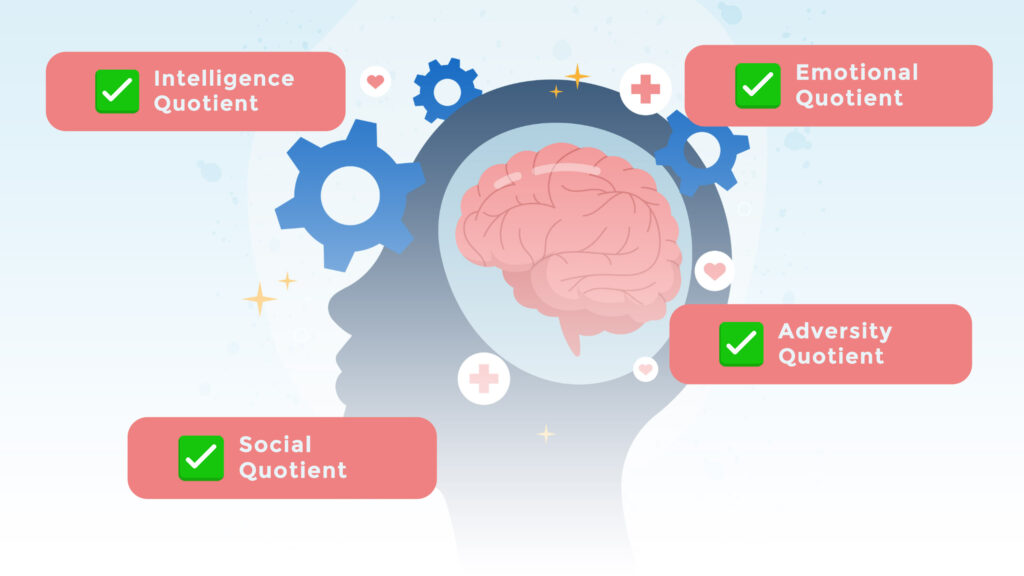
While IQ helps you solve logical problems, it doesn't fully show your ability to handle other key life aspects. These include social communication skills, emotions, or adapting to diverse cultural environments.
EQ - Emotional Quotient
"Emotional Intelligence grows through perception. Look around at your present situation and observe it through the level of feeling.” – Deepak Chopra
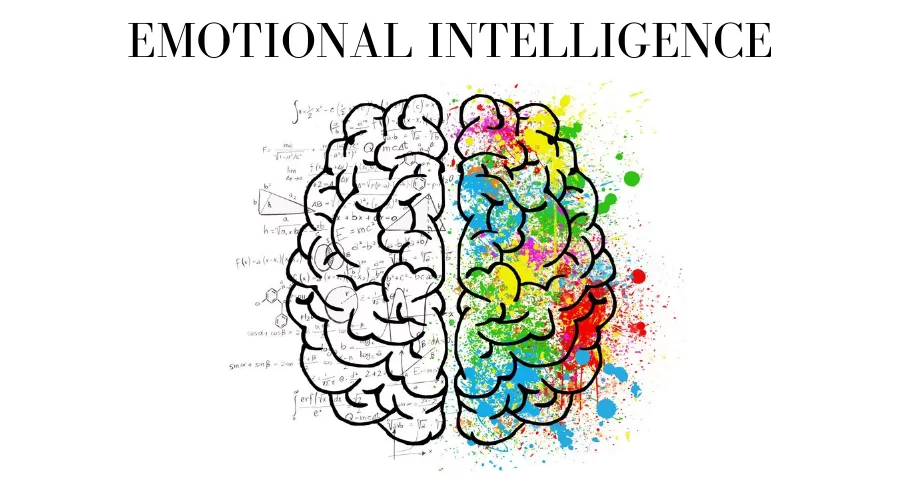
What is EQ?
EQ, or Emotional Quotient, is also called emotional intelligence. It's the ability to recognize, understand, and manage your own emotions and others. It includes five main parts: self-awareness, self-regulation, motivation, empathy, and social skills.
EQ scores are scaled similarly to IQ. They typically range from 0 to 160. The average EQ score is usually between 90 and 100. Furthermore, an EQ score above 130 is considered high.
Test yourself out: Do you have a higher EQ score than the average?
Why EQ matters?
Today, the saying "relationships over transactions" is still quite common. So, it's hard to deny that people with high EQ tend to find more success. This is because high-EQ individuals are not only good at managing their feelings. They also know how to interact effectively with others. Notably, a high EQ can help you achieve a more effective "workflow."
💡Fun Fact: High EQ Can Mean More Money! Did you know people with high emotional quotient earn about $29,000 more each year on average compared to those with lower EQ? What's more, every single point increase in your EQ could add $1,300 to your annual income.
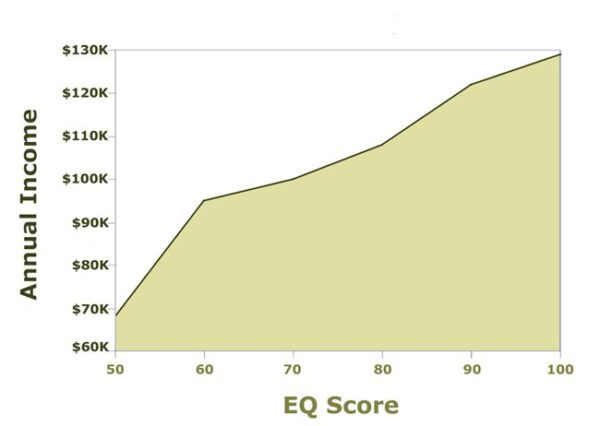
Common fields for high-EQ individuals include:
- Human Resources (e.g., HR specialists, HR managers)
- Education and Training (e.g., teachers, lecturers)
- Customer Service (e.g., customer service representatives, account managers)
- Psychological Counseling (e.g., psychologists, counselors)
- Marketing and Sales (e.g., salespeople, marketing specialists)
How EQ impacts success
A high EQ can mean that you are comfortable making friends and connecting with different people. In the workplace setting, people with high emotional intelligence are easily supported by colleagues and even superiors. Thus, there is more chance that they will climb the ladder and make it to the top position.
And of course, they also have to show they are capable enough to do well in new positions. But if you have the mindset, skillset and a high EQ, get ready to be promoted.
Limitations of EQ
While EQ helps you connect easily with others, it doesn't guarantee the ability to solve complex problems or use logical thinking. Additionally, if not used carefully, EQ can be misused for "gaslighting" or manipulating others. Among IQ, EQ, and AQ, EQ doesn't measure creativity or technical expertise. Sometimes, people with high EQ can also get stressed from "emotional overload."
Explore more: 8 signs you have a lower EQ than you might think
SQ - Social Quotient
“The more socially intelligent you are, the happier and more robust and more enjoyable your relationships will be” - Daniel Goleman

What is SQ?
SQ, or social quotient, is how you can build a group of friends or even a community and your ability to maintain your groups over a period of time. Social intelligence includes social awareness, cognition, facility and social skills.
SQ is almost like an extension of EQ but with a broader scope. This quotient focuses more on how you navigate through social situations and understanding social dynamics.

Why SQ matters?
SQ is crucial because it helps you navigate the external world of human interaction. It's not just about understanding your emotions or those of others, which is part of emotional intelligence. Instead, SQ is about how you apply that knowledge in a social setting. For example, SQ helps you read the unspoken rules of a group and understand social dynamics. This allows you to build trust and rapport, making you a more effective leader, teammate, and friend.
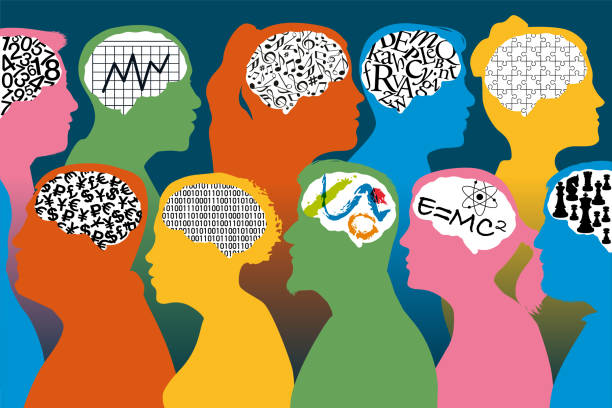
Ultimately, SQ is the key to being "people smart" and building a strong network, which is essential for both professional success and personal fulfillment.
How SQ impacts success
Social intelligence (SQ) impacts success by shaping how you navigate the human landscape. It is not just about what you know, but how well you can connect and work with others. SQ allows you to read a situation, understand different perspectives, and adapt your actions to build rapport and trust.

SQ is critical in professional settings, where it contributes to more effective leadership, better teamwork, and stronger networks. Personally, SQ helps you build more meaningful relationships and navigate conflicts with greater ease. In essence, it is the crucial skill of being "people-smart," which is a fundamental component of success and overall well-being.
Limitations of SQ
Again, just like EQ, SQ does not always show that you are empathic. One person can use this quotient for manipulation, not considering the damage to other people. Moreover, SQ depends on the culture of each country: in this region, you might be socially smart, but the same scenario doesn’t happen when you are in another country.
Finally, SQ is not a standalone predictor of success. It must be balanced with other forms of intelligence (IQ, EQ, AQ) for you to get further in life.
AQ - Adversity Quotient
“AQ - your adversity quotient is also important. You need to adapt. It's either you change or you become extinct. You innovate or you evaporate." - CHINKINspirational Quote
What is AQ?
AQ, or Adversity Quotient, measures a person's ability to face and overcome challenges. Among IQ, EQ, and AQ, AQ assesses an individual's persistence, flexibility, and endurance. This applies to various life challenges, from personal difficulties to work and social issues.
The AQ scale has three main groups:
- Quitters: These people give up easily when facing challenges, showing low AQ.
- Campers: These individuals can handle some difficulties but stop trying when they reach a certain level.
- Climbers: These people persistently face adversity and always find ways to overcome hardship. They demonstrate high AQ.
Why AQ matters?
AQ is the ability that helps you be "stubborn" in the right way when being confronted with difficulties. Facing a challenge? No problem. A person with high AQ will persevere, learn from it, and keep moving forward. They don't give up easily and always find ways to overcome all obstacles, even when things seem tough.
💡Fun Fact: High AQ Can Lead to a Longer Life! Research shows that people with high AQ have a 20% reduced risk of cardiovascular disease. This can lead to a longer life. This is because they experience less prolonged stress and recover better after setbacks.
Common fields for high-AQ individuals include:
- Entrepreneurship (e.g., founders, entrepreneurs)
- Project Management (e.g., project managers, executives)
- Professional Sports (e.g., athletes, coaches)
- Social Work (e.g., social workers, relief workers)
- Financial Investment (e.g., investors, stockbrokers)
How AQ impacts success
Life is not always easy. So if one decides to give up when life is tough, they will probably never make it big. A person with high AQ is likely to embrace all the ups and downs and stand up where they fall. What’s more, they will try to push forward and thrive in the face of challenges.
One can be smart either logically or emotionally. But they will still fail when they don’t have a strong will to continue to fail and learn lessons.
Limitations of AQ
While AQ helps you persist through difficulties, sheer persistence isn't enough. Among the quotients, AQ cannot replace logical thinking or technical expertise. Furthermore, high-AQ individuals can easily become stressed if they focus too much on "overcoming hardship" and forget to care for their health.
How To Improve All Quotients
Success is the balance of all four quotients. When you consistently find opportunities to improve your intelligence, you are many steps closer to your dream life.
Improving IQ
You can exercise your brain with intellectual activities every day. You can start by reading a non-fiction book or adopt the habit of playing chess, Sudoku or other mental games. It’s not hard to dedicate the activities since you only have to spend 5-10 minutes daily.
Want to find out more activities to improve IQ? Check this easy and effective way to improve your IQ!
Improving EQ
Start reading and labeling your emotions. Only when you truly understand your emotions can you step into the shoes of other people. Another thing you can do to improve EQ is you learn from everyday interactions with people. From this, you can ask yourself: “How can I respond differently to make the situation better?” and take another approach when facing similar scenarios.
EQ is not fixed like IQ, so there is always a chance to improve the EQ score.
Improving SQ
To improve your social intelligence, start by simply paying attention to others. Watch how people act and listen to what they say. Then, try to see things from their perspective to build empathy. Finally, put yourself in new social situations. This practice will help you get better at reading people and navigating any social setting.
Improve AQ
Increasing AQ is more like a mental self-encouragement. When facing difficulties in life, just put more effort into solving the problems and thinking to yourself: “What is the reward if I can overcome this situation?”. Start to see challenges as temporary setbacks and opportunities for growth. If you fail, the failure is not permanent, you can always strive for better results.
Finally, strengthen your support system by connecting with others and seeking help when you need it. These steps will help you better withstand and learn from adversity, rather than being defeated by it.
Utilizing IQ, EQ, SQ, AQ For Success
No single intelligence is superior. Each one plays an important role in different aspects of life. However, many experts believe the ideal formula for success is:
Success = 20% IQ + 80% (EQ + SQ + AQ)
This means that to be successful, you only need about 20% of your IQ to handle tasks that require logic and analysis. The other 80% is made up of EQ, SQ, and AQ, which help you manage everything else. These factors truly play the biggest part in determining your long-term success and happiness.
To see this in action, consider J.K. Rowling, the author of the "Harry Potter" series. While she had writing talent (IQ), she faced many hardships, such as being unemployed and raising a child alone. Thanks to her high AQ, she never gave up and kept working toward her goal. Her EQ and SQ also helped her connect with readers through the emotional stories she told, which contributed to the global success of "Harry Potter."

Therefore, remember that IQ might help you get started, but EQ/SQ and AQ are the factors that will help you sustain and grow on your path to success.
DISC Model: Connecting With IQ, EQ, SQ, AQ
The DISC model helps define how we use our IQ, EQ, SQ, and AQ in life and at work by classifying human behavior into four groups: Dominance (D), Influence (I), Steadiness (S), and Compliance (C). Each personality type influences how we use these intelligences.
- IQ is the foundation that helps each DISC type process information and make logical decisions.
- EQ/SQ helps each group manage emotions, interact socially, and build relationships that fit their personality style.
- AQ determines each group's ability to handle pressure, overcome failure, and stay motivated, which boosts the effectiveness of their behavior.
Read more: Who are you among the 15 DISC personalities?

For example, people in the D-type group often have a high AQ, so they persevere through challenges. On the other hand, the I-type group has a high EQ/SQ and is good at connecting with and inspiring people. To develop fully, each group needs to build on their strengths and improve in areas where they are lacking.
Final Thoughts
In your pursuit of lasting success, relying on IQ alone is not enough. You must combine it with EQ/SQ to manage emotions and AQ to overcome challenges. Each of these intelligences provides unique value, but the true difference is made when you develop all four. Hopefully, you have grasped the meaning of IQ, EQ, SQ, and AQ to start making improvements in your life.
Additionally, understanding your personality through the DISC model will help you optimize how you use each intelligence. discpersonalities.com is a partner in your journey of "self-understanding" and will help you become more successful than you were yesterday.
FAQs About IQ, EQ, SQ, AQ
1. Can IQ change over time?
True. Exercising your brain every day and consuming healthy content can help you have an active mind. Physical activities and nutrition also contribute to your overall mental sharpness over time. However, IQ is most changeable during impressionable stages such as childhood and adolescence. So in these stages, it’s best to keep learning, exercising and eating healthy food.
2. Can EQ, SQ, AQ be improved like IQ?
EQ, SQ, AQ can be increased through social interactions, experiences and perseverance when facing difficulties.
3. How does each quotient interact with one another?
IQ helps one process information logically, while EQ/SQ helps this person deliver the information through effective communication and understanding. And AQ affects how one overcome challenges when everything does not always go as planned.
4. What is the key difference between IQ, EQ, SQ and AQ?
Full forms of IQ, EQ, SQ and AQ and their definition:
- IQ (Intelligence Quotient): Measures your logical and analytical abilities.
- EQ (Emotional Quotient): Measures your ability to understand and manage emotions.
- SQ (Social Quotient): Measures your ability to navigate social situations and build relationships.
- AQ (Adversity Quotient): Measures your ability to handle and overcome challenges.


Don't Let Your Potential Stay Hidden!
Take the DISC test today and discover your unique 'YOU', with deep insights into your true personality and potential.

Represents your instinctive behaviors and desires.
Shows the behavioral tendencies you think you should exhibit in specific situations.
Related articles
You may also be interested in
 IQ, EQJun 19, 2025
IQ, EQJun 19, 20257 Facts About IQ You May Not Know
Think you know IQ? Discover 7 lesser-known facts about IQ that may blow your mind. Let’s get ready to be amazed!
 IQ, EQMay 29, 2025
IQ, EQMay 29, 2025What Is A High IQ? Definition, Classifications & Key Insights
Wondering what is considered a high IQ? Explore IQ classifications, what a high IQ score means, and how it impacts success in our detailed guide.
 IQ, EQMay 29, 2025
IQ, EQMay 29, 2025Top 8 Low EQ Signs That Can Hinder Your Success
Discover 8 low EQ signs that can prevent your success! Learn the causes and effects to avoid being a low EQ person. Click to see now!
